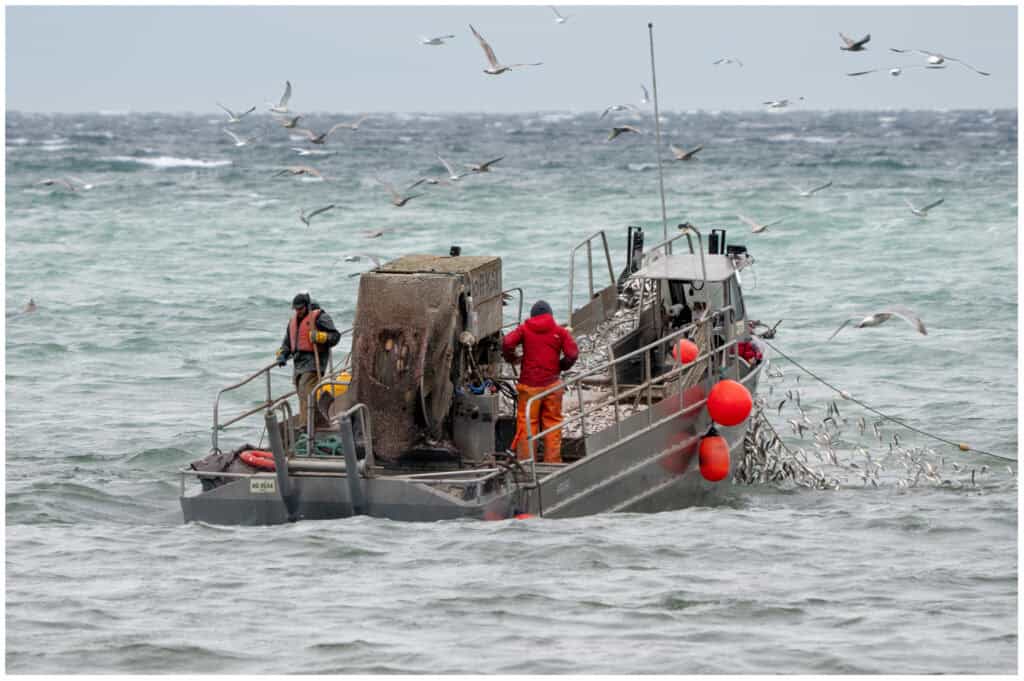Amicus Briefs
Loper Bright v. Raimondo
CASE SUMMARY
A Final Rule promulgated by the National Oceanic and Atmospheric Administration requires fishing companies to pay for government monitoring of their herring catch, but no statute authorizes the agencies to obtain funding from regulated parties. Nevertheless, in August 2022, the U.S. Court of Appeals for the D.C. Circuit invoked the Chevron precedent in Loper Bright v. Raimondo, ruling that NOAA Fisheries’ Final Rule was allowable under an expansive reading of the Magnuson-Stevens Act. Chevron required federal judges to defer to federal agencies’ reasonable interpretations of ambiguous statutes.
NCLA’s first amicus brief—co-authored by founder Philip Hamburger—made important arguments against Chevron deference that the Court had never evaluated. First, it pointed out that deference requires judges to abandon their duty of independent judgment. This ancient duty is inherent in the office of being a judge and carefully protected in the Constitution by life tenure, a rule against salary diminishment, and other protections. Yet Chevron told judges they must defer instead in their legal rulings to members of the Executive Branch who lacked independence.
Second, the brief argued that Chevron deference denied due process of law by requiring judicial bias in favor of one party to a case—the powerful government, no less—and against the other party in court. This systematic bias would not be tolerated in any other context, but it had been polluting Chevron cases for nearly four decades. The brief also explained why certain excuses for Chevron bias failed, why stare decisis could justify retaining deference, and why the Court needed to repudiate Chevron deference altogether, rather than try to shore it up at the margins.
In June 2024, the U.S. Supreme Court overturned the Chevron doctrine and vacated the First Circuit’s decision, a monumental victory for NCLA and the country as a whole.
OUR TEAM
RELEVANT MATERIALS
NCLA FILINGS
Brief Amici Curiae of Relentless Inc., Huntress Inc. and Seafreeze Fleet LLC in Support of Plaintiffs-Appellants
September 4, 2024 | Read More
Opinion of the U.S. Supreme Court
June 28, 2024 | Read More
Brief for the Respondents
September 15, 2023 | Read More
Amicus Curiae Brief of the New Civil Liberties Alliance in Support of Petitioners
July 24, 2023 | Read More
Brief for Petitioners
July 17, 2023 | Read More
PRESS RELEASES
NCLA’s King George III Prize Crowns Former SEC Chair Gensler 2024’s Worst Civil Liberties Violator
June 11, 2025
NCLA Asks D.C. Circuit to Scrub NOAA’s at-Sea Monitor Rule After Toppling Chevron Deference
September 5, 2024 | Read More
Seven Supreme Court Victories Underscore NCLA’s Success in Limiting Unlawful Administrative Power
August 19, 2024 | Read More
NCLA Amicus Brief Challenges Supreme Court to Deep-Six Chevron Deference and at-Sea Monitor Rule
July 24, 2023 | Read More
Rhode Island Herring Fishermen Encourage Supreme Court Review of NMFS’s at-Sea Monitor Rule
December 16, 2022 | Read More
IN THE MEDIA
How Washington Can Finally Get Back to Fiscal Sanity
January 20, 2025
Overturning Chevron Is a Major Victory
September 19, 2024
Will Lower Courts Preserve the Administrative State?
September 4, 2024

